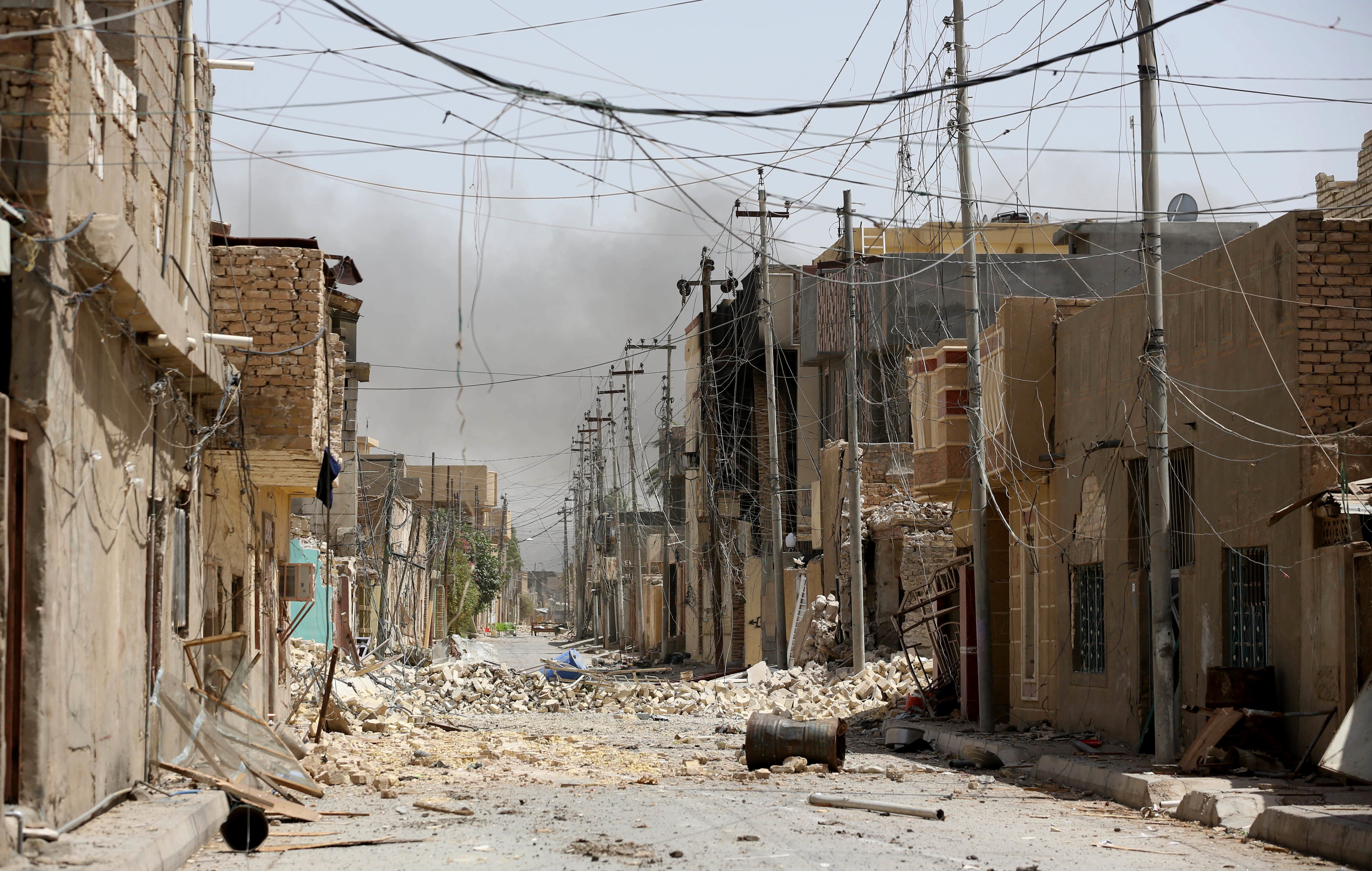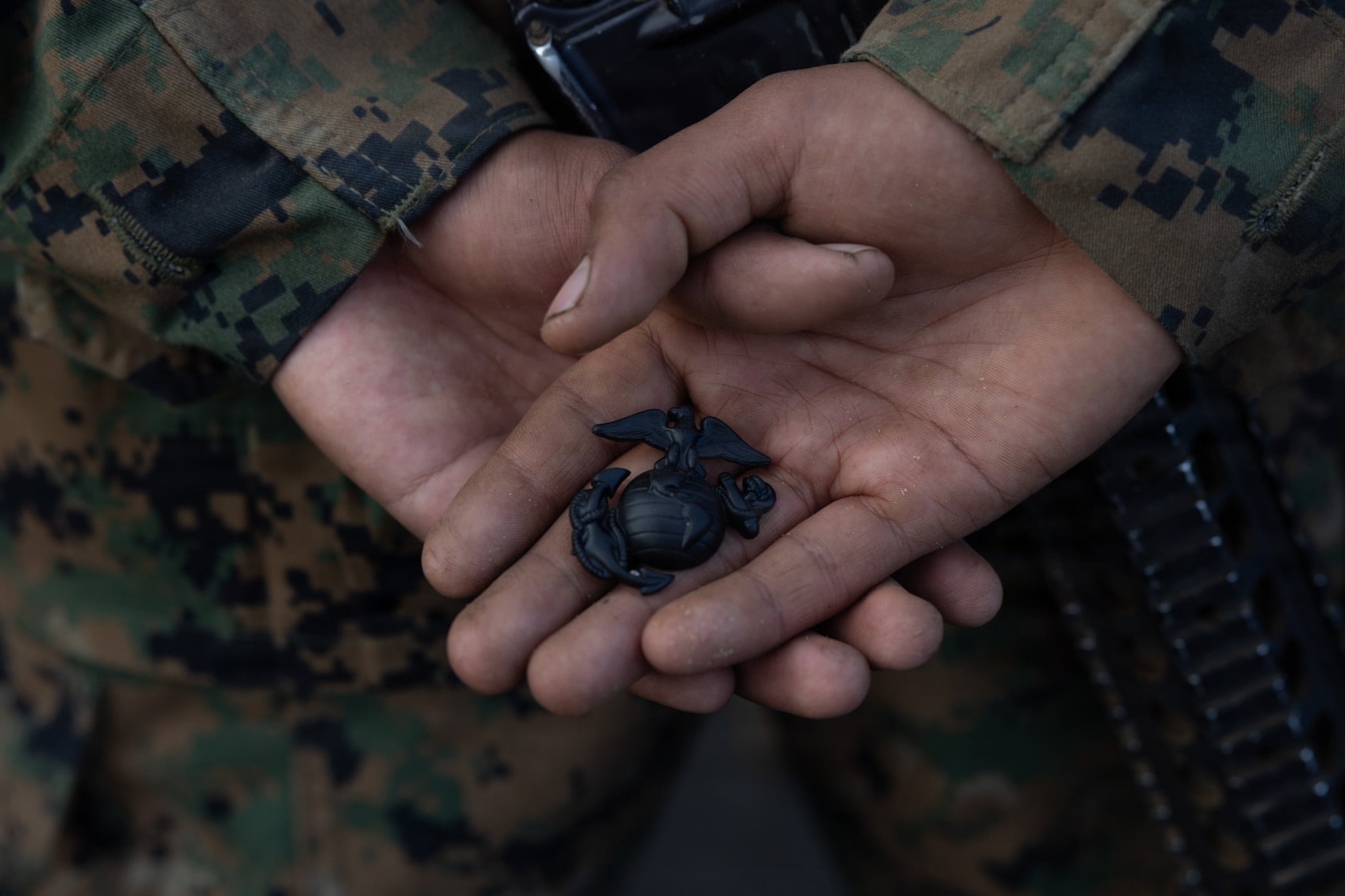FALLUJAH, Iraq — Clumps of hair from hastily shaven beards littered floors and filled wastebaskets in houses in the Iraqi city of Fallujah's western neighborhood, a dense block of low-rise homes that were the Islamic State militants' last stand before they largely fled, melting into the sprawling Anbar desert in the face of advancing Iraqi ground forces.
Iraqi officers said they bombed convoys of fleeing militants this week, destroying dozens of vehicles and purportedly killing scores of IS fighters.
But the way IS abandoned the long-held urban stronghold also underscores the group's ability to adapt and regroup, long after defeat on the battlefield.
In the city's Julan neighborhood, Iraqi Cpl. Sahar Najim kicked through the refuse of facial hair with his boot, saying that he has seen similar scenes in other cities and towns retaken from IS. As the militants realize they are losing, they quickly shave off their beards to disguise themselves and escape among fleeing civilians, he said.
Losing Fallujah, 65 kilometers (40 miles) west of Baghdad, was a huge blow to the Sunni militant group, depriving it of bomb-making facilities, a safe haven for training recruits and sources of income through taxing the local population.
To the east, in the city's industrial neighborhood, dozens of car repair shops had been converted into car bomb factories. A garage still advertising Toyota car repairs was stocked with plastic jugs filled with chemicals.
Iraqi forces declared Fallujah fully liberated on Sunday, after government troops routed the remaining IS fighters from the city's north and west under the close cover of U.S.-led coalition airstrikes. The battle, which began May 22, was the latest in a string of territorial defeats for IS in Iraq over the past year.
At the height of the group's power, in 2014, IS rendered nearly a third of the country out of government control, having blitzed across large swaths of the north and west and capturing Iraq's second-largest city of Mosul. Now, it's estimated to control only 14 percent of Iraqi territory, according to the office of Iraq's prime minister.
More than 500 IS fighters managed to flee Fallujah throughout the five-week offensive, an Iraqi officer told The Associated Press on Thursday. Earlier this year, more than 1,000 IS fighters were estimated to have fled the operation that retook Ramadi, the Anbar provincial capital.
Coalition officials initially estimated that only 500-700 IS fighters were inside Fallujah, but once the operation began, Iraqi officers said it quickly became evident there were many more. Iraqi Lt. Gen. Abdul Wahab al-Saadi gave an estimate of around 3,000.
In the face of battlefield losses, IS has in the past resorted to large-scale bombings in Baghdad and other Iraqi towns, far from the front-line fighting. In May, after IS lost the strategically important town of Hit in Anbar province, a wave of bombings in and around Baghdad killed more than 200 in a single week.
After declaring Fallujah IS-free, coalition and Iraqi planes attacked a series of convoys of suspected IS fighters and their families outside the city. Two convoys were hit by Iraqi and coalition airstrikes, and a third convoy, outside Ramadi, the provincial capital, was also targeted.
In total, more than 200 vehicles were estimated to have been destroyed and hundreds of suspected IS fighters were thought to have been killed in the span of three days this week, according to an Iraqi officer who took part in calling in the airstrikes. Both Iraqi officers spoke on condition of anonymity because they were not authorized to discuss operational details.
IS has made no statements on its Fallujah losses and the numbers could not independently be verified.

Rubble fills a street in Fallujah, Iraq, June 27, 2016.
Photo Credit: Hadi Mizban, AP
There are concerns that the militants who got away will regroup.
"Of course we are concerned," coalition spokesman U.S. Army Col. Christopher Garver said about IS fighters who managed to escape and the Islamic State's ability to morph back into an insurgency. "But we have to defeat them first on the battlefield."
Some Iraqi officials say the haphazard method in which IS fled — in convoys traversing open desert where the militants were exposed to airstrikes — indicates the extremists are in their last throws and nearing total defeat.
But mobilizing of hundreds of fighters, just days after the declared fall of Fallujah shows IS still exercises a significant degree of command and control, according to Nathaniel Rabkin, managing editor of Inside Iraqi Politics, a political risk newsletter.
"IS are masters at going to ground and living to fight another day," Rabkin said, adding that while the Iraqi military has learned to recapture towns and cities from IS, the extremists will continue to be a threat once they go underground.
Hunting down IS forces who have gone into hiding, Rabkin said, "that is a more difficult challenge."
Associated Press writers Qassim Abdul-Zahra and Sinan Salaheddin in Baghdad contributed to this report.
Copyright 2016 The Associated Press. All rights reserved. This material may not be published, broadcast, rewritten or redistributed.





